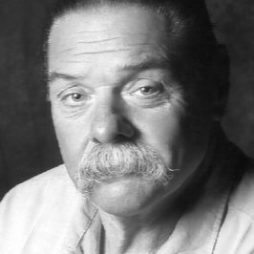
By Boston Woodard
There is new hope to end state-sanctioned executions in California. In a 39-page ruling by U.S. District Court Judge Cormac Carney, he concluded that California’s death penalty sentence is “unconstitutional.”
In the July 16 ruling, Carney explained that the “inordinate and unpredictable” delay, more than 20 years, has resulted in a death penalty system in which few of the hundreds of individuals sentenced to death have been or “even will be” executed by the state.
A key issue supporting Carney’s decision is that the state may not arbitrarily inflict the death penalty. He cited due process and fair punishment embedded in the Eighth Amendment.
Since 1978, when voters passed Proposition 7, known as the Briggs Initiative, when California readopted the death penalty, more than 900 people have been sentenced to death for their crimes. Of them, only 13 have been executed.
According to case law cited in Casey’s ruling, Furman, 408 U.S. at 274-77, “The State must not arbitrarily inflict a severe punishment” as “inherent in the [Cruel and Unusual Punishment] clause.” The citation in Casey’s ruling included constitutional history regarding the punishment.
“There is evidence that the provision of the English Bill of Rights of 1689, from which language of the Eighth Amendment was taken, was concerned primarily with selective or irregular application of harsh penalties and that its aim was to forbid arbitrary and discriminatory penalties of a severe nature.”
In an April 2014 order issued by Carney, he said, “This court is extremely troubled by the long delays in execution of sentences in this and other death penalty cases.”

Carney issued his July 16 ruling in a decision that “vacated” the death sentence of Ernest Dewayne Jones (of Los Angeles) convicted in 1992 of killing Julia Miller, his girlfriend’s mother. The ruling applies only to Jones’ case but will have broad significance if confirmed by appeal.
Michael Laurence, the lead defense lawyer in Jones’ case, has litigated the constitutionality of lethal injection and the gas chamber and the state’s failure to appoint competent attorneys for death row prisoners for 25 years.
“To have [a] judge say the death penalty is unconstitutional, it is kind of stunning,” Laurence said in a report by Dan Morain in the Sacramento Bee. He said the court will grant Jones a new trial but not before a lengthy process. The court has done this in a majority of California capital habeas corpus cases.
According to Adrian A. Kragen, professor of law and director of the Center for the Study of Law and Society in Berkeley, the current death row population is so immense that if California were to resume executions it could not substantially carry out a majority of those sentenced to die. In fact, to carry out the death sentences of the 748 prisoners currently on death row “the State would have to conduct more than one execution a week for the next 4 years,” according to Kragen.
Longtime prisoners’ rights activist and death penalty opponent Maria Telesco believes we should take a deep breath and look at Judge Carney’s ruling in Jones’ case realistically. “A lot of people got the idea that somehow this judge got rid of the death penalty. People were rejoicing thinking that was the end of the death penalty,” said Telesco.
Keep in mind that nowhere in Judge Carney’s ruling does it say the death penalty is unconstitutional. He’s saying that we should end it because of the long waiting period before carrying out the sentence, which is what he deemed “unconstitutional.” Although his ruling may have saved or prolonged the life of Jones, there is much more to be done, such as waiting out the appeals process of his decision.
“Now the proponents of the death penalty are yelling…they are trying to figure out a way to speed things [executions] up,” said Telesco. Opponents of the death penalty can only hope at this point that the Jones case set in motion the demise of state-sanctioned executions in California.
Legal pundits say Judge Carney’s ruling could be appealed by Governor Jerry Brown or State Attorney General Kamala Harris, who both oppose the death penalty. Harris has asked the 9th U.S. Circuit Court of Appeals to review Carney’s decision. What happens in the court depends on the judges that review it.
If upheld in the 9th Circuit, it will likely go to the U.S. Supreme Court. For now, Jones will probably remain on San Quentin’s death row.
*****
Boston Woodard is a prisoner/journalist. He writes for the Community Alliance and has written for and/or edited several prison publications. Boston is the author of Inside the Broken California Prison System, which is available at www.amazon.com. Learn more at www.brokencaliforniaprison.com. Contact him at Boston Woodard, B-88207, I-C-38, S.Q.S.P., San Quentin, CA 94974.
